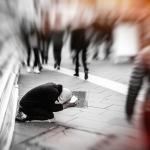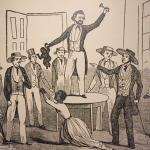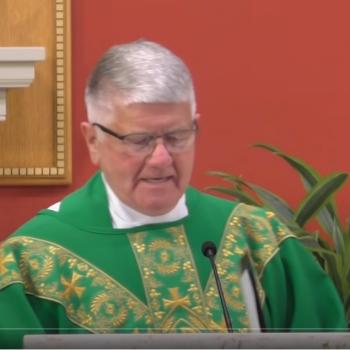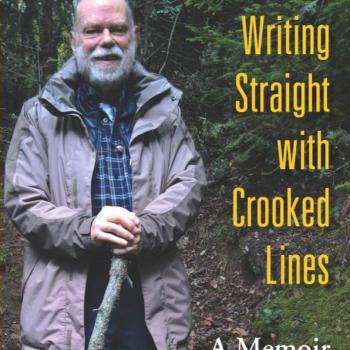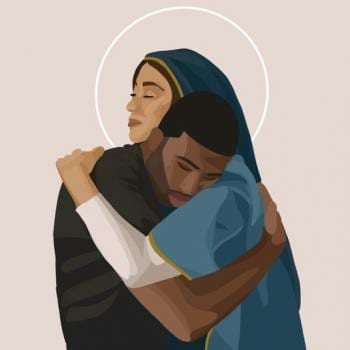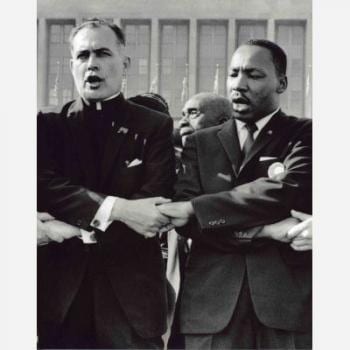The following is adapted from a speech given to the RI League of Women Voters on June 7, 2018.
Thank you to the League of Women Voters for inviting me to speak on this auspicious occasion, and congratulations to the 2018 winners of the Susan B. Wilson Civic Education Merit Awards. I was given the opportunity to review the three winning applications, and I have to say that I’m humbled to help honor Christine, Seth, and Jennifer.
The other day I was speaking to my wife about this talk, and I said I’m not exactly sure why I was invited. I’m not an educator and I don’t serve in public office. I’m a voter, but obviously I’m not a woman voter. My wife agreed that I am completely unqualified to give this talk, but then she said, “Look, don’t try to be too charming, too intellectual, or too articulate. In other words, just be yourself.” So, that’s what I’ll try to do.
I’ve been asked to speak today on the topic of good citizenship. I wear many hats, but I’d like to make this presentation in my capacity as president of SVDP Rhode Island, the Society of St. Vincent de Paul, which has been active in the state since 1856. We are an independent, lay, Catholic nonprofit focused on providing person-to-person service to the needy. We are organized into 35 local conferences – or chapters – around the state with 400 active volunteer members who visit the needy in their homes to bring them dignity, friendship, and aid. Last year, we provided $2.5 million in assistance to an estimated 20,000 Rhode Islanders. That assistance took the form of rent and security deposits, utility payments, food, clothing, medical bills, and more.
We in the Society of St. Vincent de Paul view our work first as a religious obligation, but also as a practical expression of good citizenship in a free republic. We are animated by three loves: love of God, love of community, and love of neighbor, and it seems to me that in one form or another these three loves are what drives all good citizenship. Let me explain.
First, love of God. Of course, we are a secular nation made up of people from many different faiths, and many people with no religious faith at all. So in terms of citizenship what I’ve called the love of God can and should be seen, in the words of Senator John McCain, as “devotion to a cause greater than ourselves.” Citizenship is more than a rational calculation based on naked and narrow self-interest. It involves loving adherence to concepts and principles that extend far beyond us and will in fact outlive us personally. Those of us in this room no doubt disagree on a wide range of things. We worship differently or not at all, we vote differently, and we come from wildly different economic, ethnic, and family backgrounds. But I would suggest that what we share is a deep faith in the principles that undergird this American republic, principles like “ordered liberty,” “the rule of law,” “due process,” and “equal justice.” These principles are themselves the “cause greater than ourselves,” and love of them is the first requirement of good citizenship.
Second, love of community. One of my favorite writers is the essayist, poet, and novelist Wendell Berry, the “sage of Kentucky.” He says, “a community is not merely a condition of physical proximity, no matter how admirable the layout of the shopping center and the streets, no matter if we demolish the horizontal slums and replace them with vertical ones. A community is the mental and spiritual condition of knowing that the place is shared, and that the people who share the place define and limit the possibilities of each other’s lives. It is the knowledge that people have of each other, their concern for each other, their trust in each other, the freedom with which they come and go among themselves.”
According to Thomas Aquinas, to love is to “will the good for the other.” American citizens express love for their community – including our national community – when they work to make the United States not just powerful, not just prosperous, but good. We hear a lot these days about making America great again, but goodness is the measure of greatness. Citizens love their communities when they expose their flaws, when they highlight the distance between the ideal the community affirms and the reality it tolerates, and when they exercise the mechanisms of government at all levels – from town hall to Congress – in order to right wrongs. That is what making America great again should to be all about.
Third, love of neighbor. Citizenship is nothing if not the pursuit of justice, which in practical terms means giving each person his or her due. This is especially true for those in our communities who are deprived of dignity, work, safety, healthcare, and other basic necessities of life. Mahatma Ghandi said that “a nation’s greatness is measured by how it treats its weakest members.” That, my friends, is true for each of us, as well. We cannot outsource concern for the poor, the sick, the vulnerable, the mistreated, and the unjustly accused. We cannot witness injustice or poverty and satisfy ourselves that a vote next year or a tweet next week is sufficient. Love acts or it is not love. In this sense, there is no greater example of citizenship as love of neighbor than the kids from Marjorie Stoneman High in Parkland, FL. They have literally been through a baptism of fire, and the chances that any of them will ever again have to face down a school shooter are practically non-existent. And yet, they organize and protest, they debate and propose legislation, all for love of neighbors and friends they lost on February 14, as well as their neighbors around the country who are still vulnerable and at risk.
So, three loves: Love of something greater than ourselves, love of community, and love of neighbor. But as the writer and Holocaust survivor Elie Wiesel said, “The opposite of love is not hate, it is indifference.” And, sadly, we in the United States seem to have lately either forgotten or discarded the notion that citizenship is about affection, about responsibilities as well as rights. As a result, we live today under what I would call a “tyranny of indifference.” One effect of that indifference is the widely acknowledged crisis known as “civics illiteracy.” Some of the statistics are frightening.
- A survey of a thousand adults conducted by the Annenberg Public Policy Center just two months before the last presidential election revealed that only a quarter of Americans could name all three branches of government. And nearly a third couldn’t name any of the three branches.
- 4 in 10 thought that the Constitution gives the President the power to declare war.
- 4 in 10 agreed that the media should be forbidden to “report on any issue of national security without first getting government approval.”
- A 2017 CSPAN survey revealed that nearly 60% of American adults couldn’t name a single Justice of the Supreme Court. A 2016 survey by the American Council of Trustees and Alumni found that 10% of college graduates thought Judith Scheindlin – Judge Judy – was a member of SCOTUS.
- In 2016, only 60% of eligible voters cast ballots in the presidential election. That’s an improvement over other recent elections, but it still means that 40% of eligible voters didn’t bother to turn out. 40% is nearly 100 million voters.
Unfortunately, this civics illiteracy begins in schools. As Amanda Litvinov, a Russian immigrant and senior editor at the National Education Association, has noted: “One of the primary reasons our nation’s founders envisioned a vast public education system was to prepare youth to be active participants in our system of self-government. The responsibilities of each citizen were assumed to go far beyond casting a vote; protecting the common good would require developing students’ critical thinking and debate skills, along with strong civic virtues.”
Litvinov goes on to observe that while “all 50 states require some form of instruction in civics and/or government, and nearly 90 percent of students take at least one civics class … factual book learning is not reinforced with experience-based learning opportunities like community service, guided debates, critical discussion of current events, and simulations of democratic processes.”
The results are disappointing. The 2014 National Assessment of Education Progress report from the National Center for Education Statistics revealed that only 25% of students reach the “proficient” standard on the NAEP civics assessment. And the vast majority of those are white, upper middle class students. The assessment will be made again this year, but results are not expected to have improved.
What can we do about this, both among students and adults alike? First, we’ll have to agree on what good citizenship is not. It is not defined merely by the rote performance of patriotic gestures like standing with hand over heart during the national anthem. Good citizenship is not about social media, endlessly posting, sharing, liking, tweeting, and otherwise launching our opinionated pixels into the often-foul air of cyberspace. Good citizenship doesn’t mean blindly aligning with this or that political tribe and repeating uncritically the tropes and slogans proffered by tribal leaders, as if ball caps and bumper stickers are all we owe each other and future generations. And good citizenship is not defined by the consumption of corporate media, which unfortunately is where 70% of us get our “news” these days. Watching Rachel Maddow or Sean Hannity doesn’t make us good citizens. I think we have to recover a sense of what authentic American citizenship looks like. We have to remember that good citizenship is rooted in affection … for principle, for community, and for neighbor. We are good citizens when we act out of love.
Last, I think we need to talk about one more love: The love of teachers for their students. If anything is going to save us from the tyranny of indifference, if anything is going to cure our epidemic of civics illiteracy, it will be young people who have discovered a cause greater than themselves, communities they strive to make good, and neighbors they want to stand with in the pursuit of justice. And the catalyst for that discovery will be teachers who love their students, teachers who model in their own affection and knowledge what it means to be a good citizen.
As I was writing this last portion of his talk, I thought about those precious teachers who alerted me to the world outside my own little life, who imbued in me a sense of responsibility for the place I live and the people I live with, who taught me that there are things worth dying, and indeed worth living for. I thought of Ms. Savant in 3rd Grade, Mr. Walsh in 5th Grade, Mr. Thornley in 8th Grade, Mr. Hargreaves in 11th Grade, Mr. Galvin in 12th Grade, and Sr. Ann Nelson in college. These teachers loved their students. They loved me. And my tribute to them as an adult has been to love in return. I’m an old man now, so all of my teachers are gone. But fortunately, we still have educators like Christine, Seth, and Jennifer, whose love for our founding principles, our community, and our neighbors is matched only by their love for students. Again, I congratulate you. Thank you.

